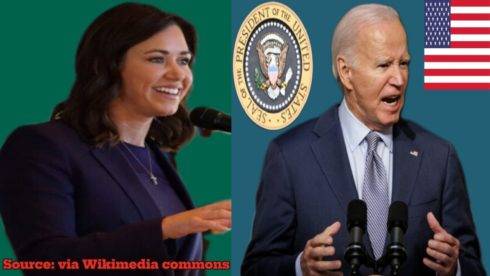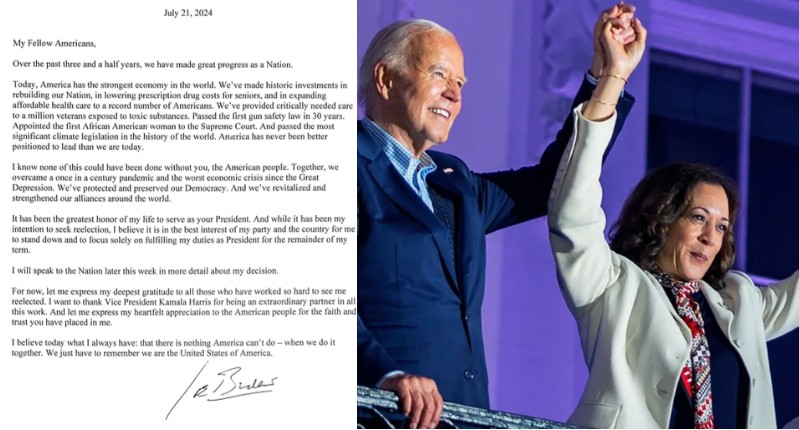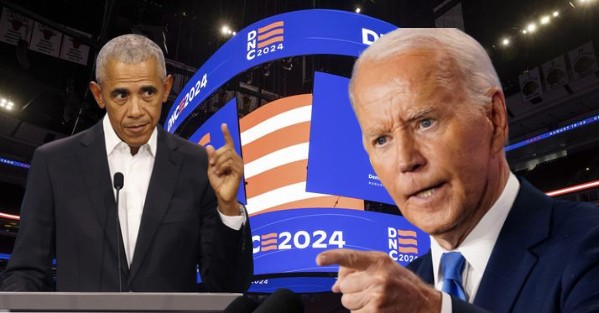In the aftermath of President Biden’s State of the Union address, Alabama Senator Katie Britt finds herself at the center of intense scrutiny from her hometown newspaper, The Birmingham News, and The Huntsville Times. Criticism mounts as her response to the address is widely ridiculed and deemed lacking in authenticity. Columnist Kyle Whitmire’s scathing editorial on AL.com portrays Katie Britt’s performance as both “bizarre” and “phony,” echoing the sentiments of many who were left perplexed by her delivery.
The negative reception of Katie Britt’s response underscores the importance of authenticity and credibility in political communication. As constituents and observers question the sincerity of her remarks, Britt faces a significant challenge in restoring public trust and perception. This incident serves as a reminder to political figures of the enduring impact of their public appearances and the critical role of genuine engagement with constituents in navigating public opinion and maintaining a positive image.
Unveiling Katie Britt’s Awkward Performance
In his scathing critique, Whitmire meticulously dissects the nuances of Katie Britt’s speech, meticulously examining the interplay between her verbal delivery and nonverbal cues. Drawing attention to the discordance between her words and actions, he elucidates on the peculiarities that marred her presentation, including mismatched emotions, misplaced smiles, and awkward facial expressions. By meticulously deconstructing these elements, Whitmire not only shines a spotlight on the speech’s flaws but also provides valuable insights into the psychology of communication, shedding light on how incongruence can undermine the effectiveness of a message.
Furthermore, Whitmire goes beyond mere analysis to offer a poignant comparison, likening Katie Britt’s delivery to avant-garde performance art. By framing it in this context, he underscores the surreal nature of her presentation, suggesting that her earnest attempt to convey authenticity paradoxically accentuated her lack thereof. This comparison adds depth to his critique, inviting readers to consider the broader implications of Britt’s performance and its impact on audience perception. In doing so, Whitmire crafts a compelling narrative that not only critiques the speech itself but also prompts reflection on the nature of authenticity and expression in public discourse.
Katie Britt’s Failed Attempt at Authenticity
In her pursuit to resonate with audiences, Britt dedicated considerable effort, but according to Whitmire, her endeavors lacked impact. Drawing a comparison to an ill-advised relative oversharing on social platforms, Whitmire’s critique depicts Britt’s attempts as misguided. Rather than endearing herself to viewers, Britt’s characterization as “America’s mom” seemingly backfired, presenting her as disconnected and disingenuous. This unintended consequence not only failed to foster rapport but also diminished her perceived authenticity, exacerbating her credibility crisis in the public’s perception.
Despite Britt’s earnest endeavors to forge connections with her audience, Whitmire argues that her efforts fell short, drawing a parallel to a well-meaning but misguided family member oversharing on social media platforms. By positioning herself as “America’s mom,” Britt inadvertently portrayed herself as out of touch and insincere, undermining her credibility in the eyes of the public. Whitmire’s critical assessment underscores the importance of authenticity and relatability in public personas, highlighting the repercussions of misaligned messaging and branding strategies.
Content Criticism: Katie Britt’s Inconsistencies
In his candid analysis of Britt’s speech, Whitmire delves deep into the core issues, notably scrutinizing her positions on immigration and sex trafficking. With unreserved criticism, he highlights what he perceives as contradictions in Britt’s stance, particularly focusing on her voting record on bipartisan border bills juxtaposed against her vocal concerns about illegal immigration. Whitmire’s critique doesn’t shy away from accusing Britt of hypocrisy, shedding light on what he sees as incongruities between her rhetoric and actions.
Furthermore, Whitmire raises doubts about Britt’s sincerity in advocating against sex trafficking, questioning the consistency of her support for individuals with questionable backgrounds. By juxtaposing Britt’s purported advocacy with her associations, Whitmire challenges the credibility of her stance on this pressing issue. His incisive analysis aims to underscore the importance of consistency and authenticity in political discourse, urging listeners to critically evaluate the substance behind the rhetoric.
Whitmire Questioning Katie Britt’s Authenticity
In the thought-provoking conclusion of the editorial, Whitmire presents a compelling question that resonates deeply with readers: “Was she ever real?” This poignant inquiry serves as the pinnacle of the critique, inviting readers to delve into the intricate layers of Britt’s persona. Through this question, the editorial encapsulates the central theme of authenticity, questioning the genuineness of Britt’s endeavors to connect with her audience. By leaving readers contemplating the authenticity of Katie Britt’s persona and the sincerity embedded within her public statements, the editorial prompts a critical examination of the persona crafted by the individual in question.
As readers navigate through the editorial’s insightful analysis, they are compelled to confront the complexities surrounding Britt’s authenticity. The editorial serves as a catalyst for introspection, urging readers to question the veracity of public figures and the authenticity of their projected personas. Through Whitmire’s astute questioning, the editorial fosters a discourse on the authenticity inherent within public personas, shedding light on the intricacies of crafting a genuine connection with an audience. Ultimately, the editorial’s profound conclusion prompts readers to reevaluate their perceptions, challenging them to discern between authenticity and artifice in the realm of public discourse.
The Birmingham News and The Huntsville Times: A Critical Assessment with Far-reaching Consequences
The recent scathing editorial penned by The Birmingham News and The Huntsville Times has reverberated far beyond the borders of Alabama, casting a shadow over Katie Britt’s political aspirations. As a locally revered publication, its critique holds substantial sway over public opinion, particularly in Britt’s hometown. The editorial’s pointed criticisms of Britt’s performance and perceived inconsistencies are likely to resonate deeply with voters, potentially reshaping their perceptions of her authenticity and suitability for office. This localized scrutiny poses a significant challenge to Britt’s campaign, as it threatens to erode the trust and support she has garnered within her constituency.
Moreover, the editorial’s dissemination on AL.com amplifies its impact, extending the reach of its assessment well beyond Alabama. With widespread circulation, Britt’s missteps and vulnerabilities are exposed to a national audience, further jeopardizing her reputation and political viability. The scrutiny imposed by this broader audience intensifies the pressure on Britt to address the concerns raised in the editorial, as failure to do so could lead to a tarnished image that extends far beyond her home state. As Britt navigates the fallout from this critical assessment, her ability to weather the storm and effectively mitigate its repercussions will undoubtedly play a pivotal role in shaping her political future.
Table of Contents
Discover more from OGM News NG
Subscribe to get the latest posts sent to your email.














